Renovating
How to Choose an Electrician
From what to ask to getting the best result possible, here’s what to know when you’re hiring an electrician
Whether it’s wiring up a new extension, installing a smart mood-lighting scheme or just upgrading your plug sockets, at some point you’re likely to need to hire an electrician. Here’s what you should know before you book someone in, so your home stays safe and functional, as well as good-looking.
Professional advice from: Wes Morgan of Morgan Electro-Tech; Ellen Sacks-Jones of Matthew Giles Architects; Harriet Sinclair-Wilson of Fable Interiors
Also in this series: How to Choose a Cabinet-maker l How to Choose an Interior Designer l How to Choose a Tiler l How to Choose an Architect l How to Choose a Kitchen Designer l How to Choose a Plumber
Professional advice from: Wes Morgan of Morgan Electro-Tech; Ellen Sacks-Jones of Matthew Giles Architects; Harriet Sinclair-Wilson of Fable Interiors
Also in this series: How to Choose a Cabinet-maker l How to Choose an Interior Designer l How to Choose a Tiler l How to Choose an Architect l How to Choose a Kitchen Designer l How to Choose a Plumber
What might I need an electrician for during a bigger project?
Renovations are a key time when you’ll need to hire an electrician. “Rewires and consumer unit [fuse box] upgrades are often needed, as circuits and cabling can frequently be old, damaged and dangerous,” Wes says. “The electrical wiring regulations (BS 7671) are updated on a regular basis and electricians are required to adhere to these.
“It all comes down to safety in the end,” he adds. “If work isn’t completed properly and to regulations, the ramifications can be incredibly serious.”
Renovations are a key time when you’ll need to hire an electrician. “Rewires and consumer unit [fuse box] upgrades are often needed, as circuits and cabling can frequently be old, damaged and dangerous,” Wes says. “The electrical wiring regulations (BS 7671) are updated on a regular basis and electricians are required to adhere to these.
“It all comes down to safety in the end,” he adds. “If work isn’t completed properly and to regulations, the ramifications can be incredibly serious.”
Is it essential to check an electrician’s credentials?
Ensuring your electrician is qualified and holds a professional membership is very important. “A good electrician should be a member of a registered competent person scheme, such as NAPIT [National Association of Professional Inspectors and Testers] or NICEIC [National Inspection Council for Electrical Installation Contracting],” Wes says. Membership means they’ll also hold public liability insurance/professional indemnity insurance.
In short, you need to feel secure your electrician can do a safe, reliable job (so don’t just choose the cheapest option). “If electrical work isn’t completed by a competent person, the risks are high in terms of safety,” Wes says.
Browse reviews of electricians in the Houzz Professional Directory.
Ensuring your electrician is qualified and holds a professional membership is very important. “A good electrician should be a member of a registered competent person scheme, such as NAPIT [National Association of Professional Inspectors and Testers] or NICEIC [National Inspection Council for Electrical Installation Contracting],” Wes says. Membership means they’ll also hold public liability insurance/professional indemnity insurance.
In short, you need to feel secure your electrician can do a safe, reliable job (so don’t just choose the cheapest option). “If electrical work isn’t completed by a competent person, the risks are high in terms of safety,” Wes says.
Browse reviews of electricians in the Houzz Professional Directory.
What about checking their experience?
With the rise of the ‘smart home’, our electrical demands are more complicated than they used to be. In particular, Ellen Sacks-Jones says, “Check [an electrician’s] familiarity with any smart lighting or control installations you’re thinking of using. Ask them to review the designs with you and flag any practical concerns in advance. Get an idea of costs and availability, and ask for references and relevant certifications.”
“You may want to see examples of similar work your electrician has done before you go ahead,” Wes says.
“Make sure your designs and proposals are clearly marked on drawings and everyone understands them,” Ellen adds.
With the rise of the ‘smart home’, our electrical demands are more complicated than they used to be. In particular, Ellen Sacks-Jones says, “Check [an electrician’s] familiarity with any smart lighting or control installations you’re thinking of using. Ask them to review the designs with you and flag any practical concerns in advance. Get an idea of costs and availability, and ask for references and relevant certifications.”
“You may want to see examples of similar work your electrician has done before you go ahead,” Wes says.
“Make sure your designs and proposals are clearly marked on drawings and everyone understands them,” Ellen adds.
What about wiring in my garden?
If you have plans for your garden, does your prospective professional also have experience with advising on outdoor lighting and power?
Ellen highlights some potential areas you might consider. “Think about lighting for dining areas, outdoor seating, highlighting architectural features of the building, and security,” she says. “And decide whether you want to be able to switch lights on from inside the house or via remote control or sensor.”
Think beyond lights, too. “Power might be necessary for electric garden tools, plugging in external speakers, charging your phone outside, and for a shed or other garden buildings,” she says.
More: How to Design Garden Lighting That’s Good for You and Wildlife
If you have plans for your garden, does your prospective professional also have experience with advising on outdoor lighting and power?
Ellen highlights some potential areas you might consider. “Think about lighting for dining areas, outdoor seating, highlighting architectural features of the building, and security,” she says. “And decide whether you want to be able to switch lights on from inside the house or via remote control or sensor.”
Think beyond lights, too. “Power might be necessary for electric garden tools, plugging in external speakers, charging your phone outside, and for a shed or other garden buildings,” she says.
More: How to Design Garden Lighting That’s Good for You and Wildlife
Can they help with aesthetics?
A great electrician should be about more than putting wires and fuses in the right places. You’ll know the overall look you want to achieve, but not necessarily how to create it.
“An electrician should be able to advise you on the visual side of lighting also,” Harriet says. “For example, advise on the different types of available light bulbs and how they can impact a room, or give you ideas about what you could achieve in a room.”
Wes adds, “You may want to create a certain mood with specialist lighting and your electrician may be able to signpost you to appropriate products or manufacturers. They may also be able to advise you on specific electrical accessories, such as socket outlets and light switches that would work with the style of your interior.”
A great electrician should be about more than putting wires and fuses in the right places. You’ll know the overall look you want to achieve, but not necessarily how to create it.
“An electrician should be able to advise you on the visual side of lighting also,” Harriet says. “For example, advise on the different types of available light bulbs and how they can impact a room, or give you ideas about what you could achieve in a room.”
Wes adds, “You may want to create a certain mood with specialist lighting and your electrician may be able to signpost you to appropriate products or manufacturers. They may also be able to advise you on specific electrical accessories, such as socket outlets and light switches that would work with the style of your interior.”
How can I make sure they understand my vision?
Carefully consider your needs, lifestyle and the details, so you can discuss them with your electrician in advance and iron out any potential issues.
“You’ll want to make sure things such as wall lights will be positioned correctly – you may want to consider different heights for different types of fitting,” Ellen says. “And make sure you have enough power sockets, even for places where you think you might not need them – such as hallways, where you may need to plug in a vacuum cleaner.”
Wes adds, “From a cosmetic point of view, if work is done badly, it will require walls to be chased out and new wiring to be installed, which in the long term will be extra work and extra expense.”
Carefully consider your needs, lifestyle and the details, so you can discuss them with your electrician in advance and iron out any potential issues.
“You’ll want to make sure things such as wall lights will be positioned correctly – you may want to consider different heights for different types of fitting,” Ellen says. “And make sure you have enough power sockets, even for places where you think you might not need them – such as hallways, where you may need to plug in a vacuum cleaner.”
Wes adds, “From a cosmetic point of view, if work is done badly, it will require walls to be chased out and new wiring to be installed, which in the long term will be extra work and extra expense.”
What about building in flexibility?
“Try to have flexibility in lighting, so you can change the ‘mood’ of a room – overhead or task lighting versus low-level lighting,” Ellen advises.
“Think about where you want sockets positioned for day-to-day use, but also for seasonal use (Christmas lights, for instance),” she says. “Also think about how doors open, and where you might want to position furniture, art and so on.
“Consider the design of faceplates,” she continues. “Do you want to make a feature of these or should they blend into the background? You may want to include some USB sockets.”
Think about future-proofing, too. “Are you going to want to install integrated speakers or extra TVs in the future, or change the layout or use of rooms?” Ellen says. “Maybe you’ll own an electric car and need a charging point for this, or at least the capability to install one without too much disruption.”
More: How to Choose a Tiler
“Try to have flexibility in lighting, so you can change the ‘mood’ of a room – overhead or task lighting versus low-level lighting,” Ellen advises.
“Think about where you want sockets positioned for day-to-day use, but also for seasonal use (Christmas lights, for instance),” she says. “Also think about how doors open, and where you might want to position furniture, art and so on.
“Consider the design of faceplates,” she continues. “Do you want to make a feature of these or should they blend into the background? You may want to include some USB sockets.”
Think about future-proofing, too. “Are you going to want to install integrated speakers or extra TVs in the future, or change the layout or use of rooms?” Ellen says. “Maybe you’ll own an electric car and need a charging point for this, or at least the capability to install one without too much disruption.”
More: How to Choose a Tiler
How can I get the most from my chosen electrician?
Your electrician might be a whizz with wires, but they aren’t telepathic, so know what you want before the job starts, communicate what you want clearly, and be open to suggestions if you’re asking for the impossible.
“Showing your electrician inspirational images of the look/lighting you’re wanting to create will be really useful,” Harriet says. “Sometimes, it can be easy to misunderstand an idea from a description, but being able to look at a picture helps to make sure everyone is on the same page.”
Search for photos you like on Houzz and save them into ideabooks.
Your electrician might be a whizz with wires, but they aren’t telepathic, so know what you want before the job starts, communicate what you want clearly, and be open to suggestions if you’re asking for the impossible.
“Showing your electrician inspirational images of the look/lighting you’re wanting to create will be really useful,” Harriet says. “Sometimes, it can be easy to misunderstand an idea from a description, but being able to look at a picture helps to make sure everyone is on the same page.”
Search for photos you like on Houzz and save them into ideabooks.
Is there any paperwork I should obtain?
If you’re planning to sell your house at any point in the future, it’s important to make sure you have all the relevant paperwork in place. This is also important for potential future insurance claims.
“If the work you’ve had done involves alterations or additions to the existing electrical circuits, customers should expect to receive a Minor Works Certificate,” Wes says. “Any new circuits created will warrant an Electrical Installation Certificate and a Building Regulations Compliance Certificate [also known as a Part P Certificate]. It’s important to have these so the installation fully complies with all relevant electrical and building regulations and is safe to use.
“Insurance companies will ask for copies of these in the event of a claim if damage is caused by faulty electrics,” he adds, “and it’s the homeowner’s responsibility to have them.”
Tell us…
What’s been the best piece of advice an electrician has given you? Share your tips in the Comments.
If you’re planning to sell your house at any point in the future, it’s important to make sure you have all the relevant paperwork in place. This is also important for potential future insurance claims.
“If the work you’ve had done involves alterations or additions to the existing electrical circuits, customers should expect to receive a Minor Works Certificate,” Wes says. “Any new circuits created will warrant an Electrical Installation Certificate and a Building Regulations Compliance Certificate [also known as a Part P Certificate]. It’s important to have these so the installation fully complies with all relevant electrical and building regulations and is safe to use.
“Insurance companies will ask for copies of these in the event of a claim if damage is caused by faulty electrics,” he adds, “and it’s the homeowner’s responsibility to have them.”
Tell us…
What’s been the best piece of advice an electrician has given you? Share your tips in the Comments.




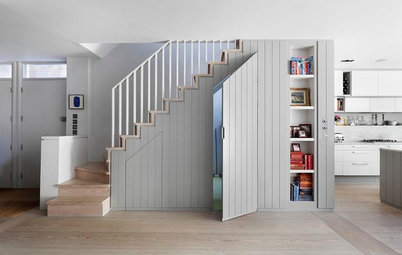

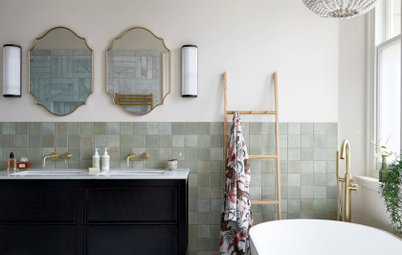
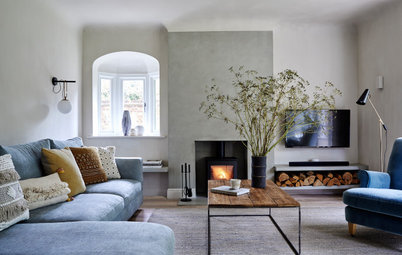

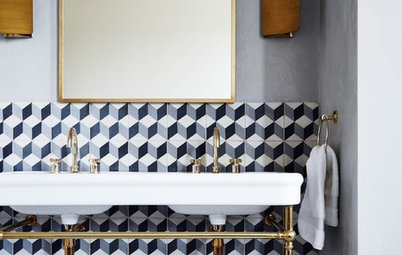

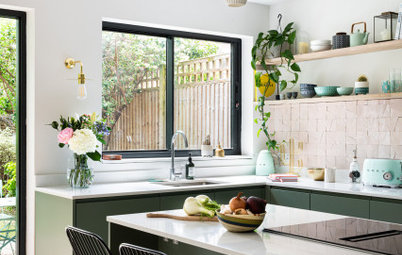

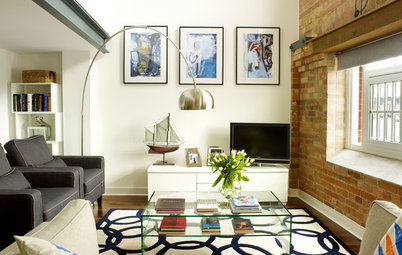
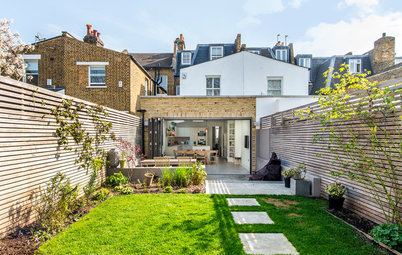

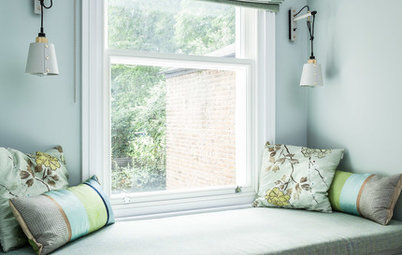

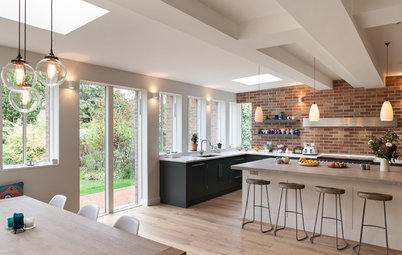

“During home makeovers, an electrician is needed for a variety of jobs, from moving or changing lighting and installing plug sockets to kitchen and bathroom electrics,” Harriet Sinclair-Wilson says.
“Security and home-automation controls for lighting or heating are also becoming more popular,” Wes Morgan adds.
Make sure you seek out the right type of electrician for these jobs. “Homeowners need to find one that specialises in domestic, not commercial, services,” Wes says. “Electricians can specialise in commercial, industrial, domestic, automotive or engineering. Some also work in more than one area.”